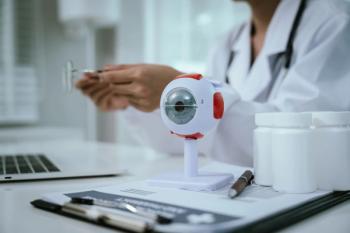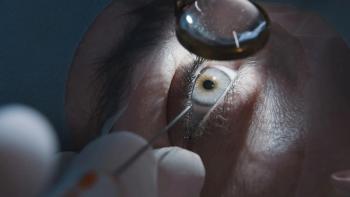
All things ocular surface, refractive, and comanagement with Dr Rose Mandel

Rose Mandel, OD, shares how the NYU Langone Eye Center tackles a variety of cases in day-to-day practice.
Rose Mandel, OD, director of optometry at the NYU Langone Eye Center Department of Ophthalmology, shared her expertise and perspectives on key aspects of optometry and patient care. Mandel began by expressing the indispensable role of the binocular indirect ophthalmoscope (BIO) in her practice. She emphasized that although modern imaging tools, such as optical coherence tomography and fundus cameras, are valuable, the BIO allows for a comprehensive examination of the peripheral retina, which is crucial for diagnosing retinal abnormalities such as floaters or flashes of light.
Moving to advancements in the management of ocular surface disease and dry eye, Mandel discussed the rise of new medications and the increasing attention to eyelid health. She observed that eyelid dysfunction can worsen dry eye conditions and that the latest therapies, including procedures performed by dry eye specialists, target the eyelids to alleviate symptoms and enhance patient comfort.
Mandel addressed the impact of a patient’s lifestyle, especially in urban settings like New York, New York, on treatment planning—specifically for children with myopia and adults who become presbyopic. She noted that early intervention in myopic children can prevent serious consequences (like retinal detachment) in adulthood, and that adults benefit from tailored optical solutions, such as specialized glasses for at-home computer work.
Building rapport with patients emerges as a core value in her practice. Mandel advocated for a nonjudgmental, educational approach, particularly when treating patients with chronic conditions like diabetes or glaucoma. Instead of assigning blame, she preferred to explain the consequences of neglecting eye health, thereby fostering trust and adherence to treatment.
She further described the collaborative dynamic between optometry and ophthalmology at NYU, highlighting seamless referrals and comanagement, especially in emergencies or for precataract surgery consultations. A typical clinic day is depicted as dynamic and varied—spanning urgent cases, postoperative visits, regular checkups, and specialty exams for complex conditions.
When prescribing glasses or contacts, Mandel meticulously considers patients’ unique needs, lifestyle, and surgical history. She personalizes care by probing into their daily visual tasks—such as musicians’ requirements for specific lighting and distances—and ensures that even patients with diminished vision in 1 eye achieve optimal functional outcomes. Ultimately, Mandel’s patient-centered approach and collaborative mindset underscore the high levels of satisfaction among her diverse patient population in midtown Manhattan.
Newsletter
Want more insights like this? Subscribe to Optometry Times and get clinical pearls and practice tips delivered straight to your inbox.





